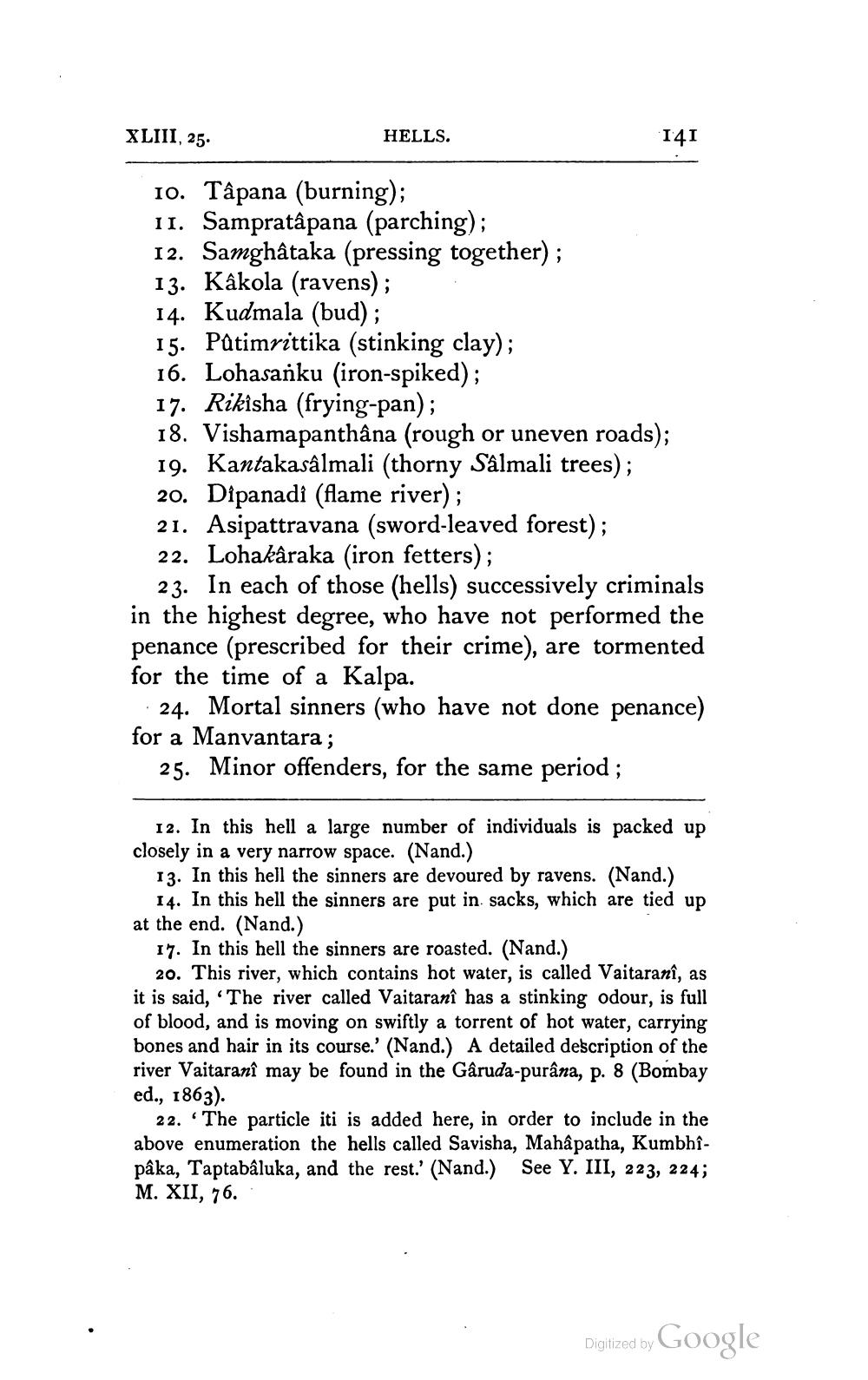________________
XLIII, 25.
HELLS.
141
10. Tâpana (burning); 11. Sampratâpana (parching); 12. Samghâtaka (pressing together); 13. Kâkola (ravens); 14. Kudmala (bud); 15. Patimrittika (stinking clay); 16. Lohasanku (iron-spiked); 17. Rikisha (frying-pan); 18. Vishamapanthâna (rough or uneven roads); 19. Kantakasâlmali (thorny Sâlmali trees); 20. Dipanadi (flame river); 21. Asipattravana (sword-leaved forest); 22. Lohakâraka (iron fetters);
23. In each of those (hells) successively criminals in the highest degree, who have not performed the penance (prescribed for their crime), are tormented for the time of a Kalpa.
24. Mortal sinners (who have not done penance) for a Manvantara;
25. Minor offenders, for the same period ;
12. In this hell a large number of individuals is packed up closely in a very narrow space. (Nand.)
13. In this hell the sinners are devoured by ravens. (Nand.)
14. In this hell the sinners are put in sacks, which are tied up at the end. (Nand.)
17. In this hell the sinners are roasted. (Nand.)
20. This river, which contains hot water, is called Vaitaranî, as it is said, “The river called Vaitaranî has a stinking odour, is full of blood, and is moving on swiftly a torrent of hot water, carrying bones and hair in its course.' (Nand.) A detailed description of the river Vaitaranî may be found in the Garuda-purâna, p. 8 (Bombay ed., 1863).
22. The particle iti is added here, in order to include in the above enumeration the hells called Savisha, Mahapatha, Kumbhîpâka, Taptabaluka, and the rest.' (Nand.) See Y. III, 223, 224; M. XII, 76.
Digitized by Google




